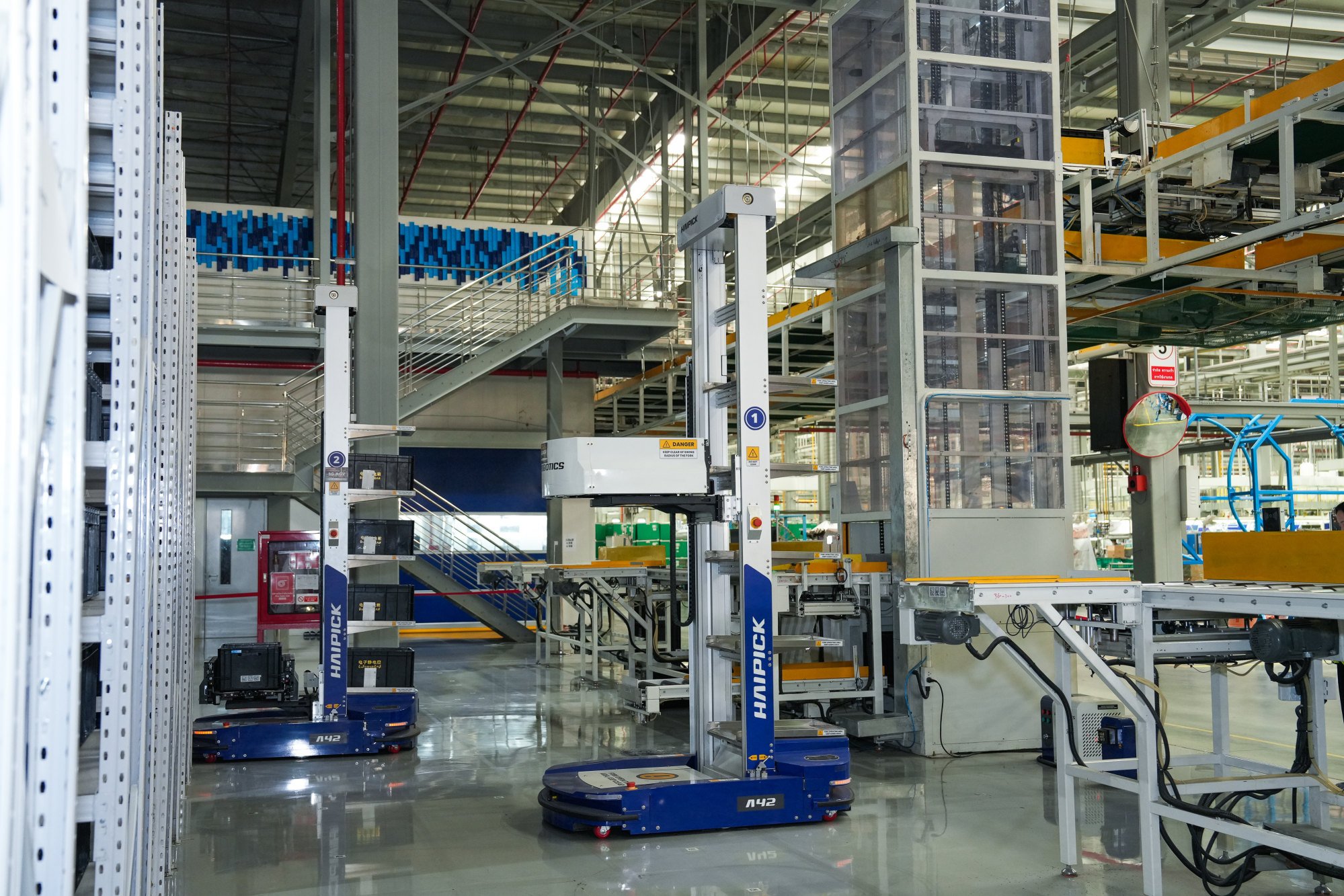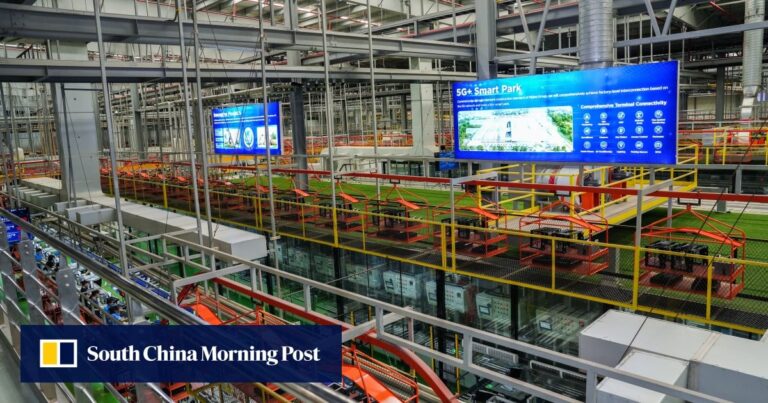In recent years, digital technologies have opened up more room for innovation in the manufacturing industry. The use of artificial intelligence (AI) and 5G networks brings a variety of benefits, including improved production efficiency, reduced operational errors, and improved product quality. The adoption of these technologies in factories is fast becoming essential for companies that want to stay competitive in a digital-first future.
According to a study by Fortune Business Insights, the value of the smart manufacturing industry is expected to grow from USD 310 billion in 2023 to USD 745.1 billion by 2030. Currently, Asia Pacific holds the largest market share in this industry and is also projected to be the fastest growing region over the next decade.
Last month, Southeast Asia’s first fully 5G-connected factory opened in eastern Thailand, a collaboration between Chinese electronics maker Midea Group, global provider of information and communications technology infrastructure and smart devices Huawei Technologies, Thai mobile operator Advanced Information Services (AIS) and telecommunications operator China Unicom.
Located in Chonburi Industrial Estate in Chonburi province, the factory uses technologies such as 5G, AI, big data and cloud computing to manufacture air conditioners. It is Midea’s first factory outside China and is now one of the largest air conditioner production bases in the region.
“In line with Midea Group’s strategy of being fully digitalised and fully intelligent, Thailand’s 5G smart factory is a blueprint for the future of manufacturing, with each production stage seamlessly connected, improving overall operational efficiency by 15 to 20 percent,” said Vincent Kai, general manager of Midea Thailand Air Conditioning Factory.
The Midea factory is a great example of how industrial processes can be modernized by taking full advantage of 5G connectivity across the factory floor: production equipment can be monitored and analyzed in real time, and the data collected helps to ensure all equipment is being used optimally.
The use of 5G technology will also help automated guided vehicles (AGVs) transport goods within factories. These vehicles can plan their routes using real-time information about the surrounding environment. They are equipped with cameras and lasers so they can communicate with other AGVs in the factory and detect hazards along their route.

“5G is the only technology that will enable network coverage of more than 160,000 square metres,” said Phupa Akavipat, acting chief corporate business officer at AIS. [1.7 million square feet] “It covers three production plants.” This level of connectivity has transformed the manufacturing process, making it more streamlined than ever before.
Eunice Tse, general manager of China Unicom’s Thailand business division, agreed, emphasizing the fundamental importance of communications and IT infrastructure: “Thailand’s 5G network readiness has established it as a pioneer in the ASEAN region. China Unicom is committed to supporting the success of Thailand’s 4.0 strategy with a wide range of use cases and new 5G2B scenarios, and promoting the digital transformation of manufacturers.”
AI inspection is another key element of smart factories leveraging 5G connectivity. Midea’s factories use AI to detect faults in air conditioners during production. The introduction of AI has significantly improved production efficiency in Midea’s smart factories, increasing first-time yield by 4%. It has also reduced the number of production line units that require rework by 75%.
Smart factories will also improve working conditions, especially in terms of safety: Workers can use 5G smartphones to remotely control robotic arms and monitor the movement of materials along the production line, reducing the risk of accidents associated with physical labor in factories.
Digital transformation has played a key role in Midea’s growth in the decade leading up to 2022, with the company’s net profit increasing more than five-fold. Over the past decade, Midea has increased the automation level of its manufacturing operations from 30% to more than 50%.
Huawei has played a key role in realizing this vision of smart manufacturing: Ranked this year for the sixth consecutive year as a global leader in 5G core products and services by data analytics firm GlobalData, the company contributes to a larger proportion of the world’s 5G networks than any other telecommunications business.

Midea and Huawei began cooperation in the home appliance manufacturer’s first 5G fully connected factory in Hubei Province, China in 2021. With a private 5G network covering the entire production and warehouse area of the factory, inventory rates have doubled and labor costs have been reduced by 30%.
Prior to the two companies’ latest collaboration on the smart factory in Thailand, Huawei had also worked with China’s Midea Group to upgrade its production campus network in Guangdong province.
“We have seen that 5G has played a key role in driving industrial transformation,” said Woragarn Likitdechasakdi, chief technology officer of Huawei Thailand. “The manufacturing industry shows great potential for development and transformation with the introduction of 5G technology. Huawei will remain committed to working with industrial customers, carriers, and partners to create business value from 5G.”

“To achieve this goal, we will actively engage with our customers to understand their digital strategies. By digging deep into their production processes and identifying their specific needs, we aim to share valuable experience and best practices to accelerate the adoption of 5G for intelligent manufacturing upgrades.”
Midea’s 5G smart factory development marks a significant milestone for manufacturing in Thailand and across Southeast Asia. It demonstrates the benefits of Industry 4.0, the digital transformation of manufacturing that management consultancy McKinsey predicted in 2018. The technology could boost annual productivity by up to US$627 billion in the region by 2025.
Huawei remains committed to supporting the development of Industry 4.0 infrastructure through the use of 5G and AI technologies. Last June, we partnered with the United Nations Industrial Development Organization (UNIDO) to establish the Global Alliance on Artificial Intelligence for Industry and Manufacturing. The platform was formed to foster collaboration and knowledge sharing in the process of bringing 5G and AI capabilities to global industries.


